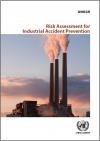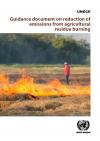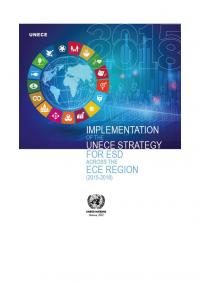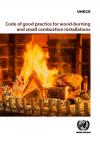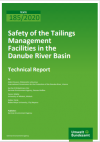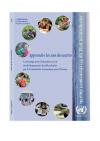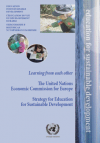Publications
Displaying Results 1 - 16 of 16
- English
Industrial accidents can have severe effects on people, the environment and economies, causing fatalities, disease outbreaks, injuries, environmental pollution, biodiversity loss, conflicts, political instability, financial loss and more. National governments and international organizations have developed legal and policy instruments and tools to prevent, prepare for and respond to industrial
- English
Download this publication in English.
This report assesses the main ingredients needed to navigate the transition towards agreed nitrogen sustainability targets.
Global nitrogen losses pose a serious threat to environmental sustainability and compromise the ability of the
- English
Agricultural residue burning is a challenge in many countries in the ECE region, as well as at the global level. Substantial and clear evidence exists that fire use has negative impact on soil organic matter by reducing soil fertility and ultimately reducing yields. Moreover, the emissions generated by agricultural residue burning contribute to air pollution and are important drivers of climate
- English
The Guidance Document on Integrated Sustainable Nitrogen Management was prepared by the Task Force on Reactive Nitrogen. The purpose of the document is to mobilize Parties’ efforts to control pollution from agricultural sources in the context of the wider nitrogen cycle in an integrated manner harvesting multiple co-benefits of improved nitrogen management. The document is in particular aimed to
- English
This evaluation report provides a summary of the progress, challenges and achievements of the Economic Commission for Europe (ECE) member States from 2017 to 2019 in implementing the UNECE Strategy for Education for Sustainable Development (ESD). The report reviews the data collected through national implementation reports submitted by member States at the end of the fourth phase of the Strategy'
- English
This publication provides an overview of good practice programs and initiatives aimed at supporting and empowering youth participation in education for sustainable development (ESD) and in the implementation of the UNECE Strategy for ESD in its member States. It includes best practices, theoretical articles on youth participation and methodologies to support inclusion of youth in ESD and
- English
Natural Hazards Triggering Technological Disasters (Natech) are becoming a growing concern for the international community and both private and public stakeholders. As climate change persists, extreme weather events such as heavy rains, lightening, floods and heatwaves are projected to be increasingly frequent and destructive, jeopardizing communities, livelihoods and industries. Accidents at
- English
Domestic wood heating is a major source of emissions of particulate matter, including black carbon (BC), and organic pollutants, such as dioxins/furans, polycyclic aromatic hydrocarbons (PAHs) and benzo[a]pyrene (B(a)P), in the ECE region, resulting in poor local air quality conditions and significant negative effects on human health. The present document responds to the need to inform the
- Pусский
Опубликовано: Ноябрь 2020
В целях поддержки компетентных органов и операторов в практической реализации Руководящих принципов и надлежащей практики обеспечения эксплуатационной безопасности хвостохранилищ Агентство по охране окружающей среды Германии (UBA) в 2016 г.
- English
In order to support competent authorities and operators in the practical implementation of the
- English
Ten Years of the UNECE Strategy for Education for Development - Evaluation report on the implementation of the UNECE Strategy for Education for Sustainable Development from 2005 to 2015. This evaluation report summarises the progress, challenges and achievements of ECE member States from 2005 to 2015 in implementing the UNECE Strategy for ESD. The report reviews
- English
Empowering educators for a sustainable future: Tools for policy and practice workshops on competences in education for sustainable developmentThis publication builts on the Learning for the Future: Competences in Education for Sustainable Development (ECE/CEP/AC.13/2011/6) report, drafted by the UNECE Expert Group on Competences, which gives advice on: (a) what competences educators need in
- English
Learning for the future – competences for education for sustainable developmentThe competences in ESD described in this document are those of educators and not of learners, although both are intricately related. They go beyond the competences that individual educators would have in order to provide a good quality education
- Français
The UNECE Strategy for ESD is a policy tool that helps the countries of the region to introduce and promote ESD in national formal, non-formal and informal education in their respective countries. It aims at developing policy, regulatory and operational frameworks to support ESD, equipping educators with the necessary competences, ensuring that adequate tools and materials for ESD are accessible
- English
The UNECE Strategy for ESD is a policy tool that helps the countries of the region to introduce and promote ESD in national formal, non-formal and informal education in their respective countries. It aims at developing policy, regulatory and operational frameworks to support ESD, equipping educators with the necessary competences, ensuring that adequate tools and materials for ESD are accessible
- English
“Learning from each other” is the main theme of this collection of GoodPractices in Education for Sustainable Development in the UNECE region. Thesegood practices and shared experiences, which were provided by a range of different stakeholders, are concrete examples of successful implementation of ESD in different fields and sectors, from the political to the school level, and including


